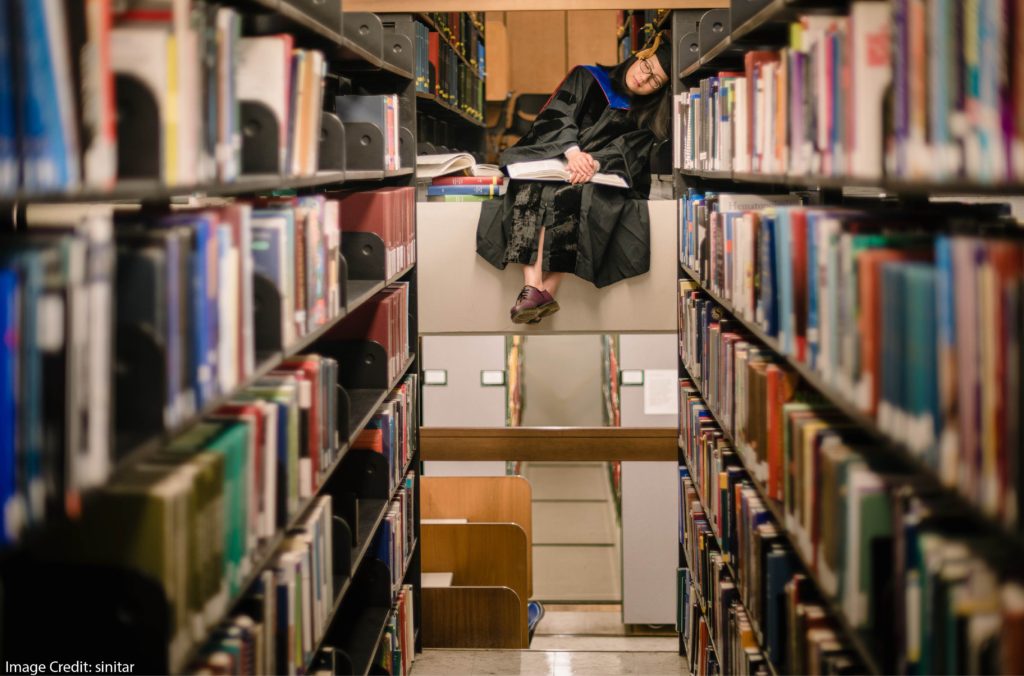The following story is true. (The names have been left out because I’ve forgotten them.)
When I attended graduate school in education, I handed in my first essay with some trepidation, and lots of excitement.
Like my classmates, I had worked hard to wrestle with the topic: how best to critique a study’s methodology. Like my classmates, I wanted to know how I could do better.
When we got those essays back, our TAs had written a number at the end. There were, quite literally, no other marks on the paper — much less helpful comments. (I’m an English teacher, so when I say “literally” I mean “literally.”)
We then sat through a slide show in which the head TA explained the most common errors, and what percentage of us had made each one.
Here’s the kicker. The head TA then said:
“Your TAs are very busy, and we couldn’t possibly meet with all of you. So, to be fair, we won’t discuss these essays individually with any of you.”
So, in a SCHOOL OF EDUCATION, I got exactly NO individual feedback on my essay. I have little idea what I did right or wrong. And, I have no idea whatsoever how I could have done better.
How’s that for teaching excellence?
Grades and Motivation: Today’s Research
My point with this story is: for me, the experience of getting a grade without feedback was a) demotivating, b) infuriating, and c) useless.
If you’d like to rethink your school’s grading strategy, my own experience would point you in a particular direction.
However: you’re not reading this blog to get anecdotes. If you’re in Learning and the Brain world, you’re interested in science. What does research tell us about grades and motivation?
A recent study on “The Impact of Grades on Student Motivation” has been getting some Twitter love.
The researchers surveyed students at a college that has grades only, a different college that offers narrative feedback only, and two colleges that use both. They also interviewed students at one of the “hybrid” colleges.
What did they find?
They didn’t pull any punches:
“Grades did not enhance academic motivation.”
“Grades promoted anxiety, a sense of hopelessness, social comparison, as well as a fear of failure.”
“In contrast, narrative evaluations supported basic psychological needs and enhanced motivation.”
Briefly: grades demotivate, while narrative feedback helpfully focuses students on useful strategies for improvement.
Certainly these conclusions align with my own grad-school experience.
Not So Fast
Despite these emphatic conclusions, and despite the Twitter love, teachers who want to do away with grades should not, in my view, rely too heavily on this study.
Here’s why:
First: unless you teach in a college or university, research with these students might not apply to your students. Motivation for 2nd and 3rd graders might work quite differently than motivation for 23-year-olds.
Second: most college and university students, unlike most K-12 students, have some choices about the schools the attend and the classes they take.
In other words: students with higher degrees of academic motivation might be choosing colleges and courses with narrative feedback instead of grades.
It’s not clear if their level of motivation results from or causes their choice of college. Or, perhaps, both.
(To be clear, the researchers acknowledge this concern.)
Third: in my experience, most K-12 teachers combine letter or number grades with specific feedback. Unlike my TAs, who gave me a number without guidance, teachers often provide both a number and specific guidance.
Fourth: the study includes a number of troubling quirks.
The interview portion of the study includes thirteen students. It is, ahem, unusual to draw strong conclusions from interviews with 13 people.
The interviewer was a student who already knew some of the interviewees. Their prior relationship might well influence their answers to the interview questions.
More than any study I’ve read, this one includes an overtly political and economic perspective. Research like this typically eschews a strong political stance, and its presence here is at odds with research norms. (To be clear: researchers have political opinions. It’s just very strange to see them in print.)
Given these concerns — big and small — we should look elsewhere for research on grades and motivation to guide our schools and our own practice.
Earlier Thoughts
We have, of course, often written about grades and motivation here on the blog. For example:
In this article, Doug Lemov argues that — although imperfect — grades are the best way to ensure that scare resources aren’t given entirely to well-connected people.
In this article, we look at the Mastery Transcript movement: a strategy to provide lots of meaningful feedback without the tyranny of grades and transcripts.
Your thoughts on grades and grading are welcome: please share your experience in the comments.
 About Andrew Watson
About Andrew Watson 


















